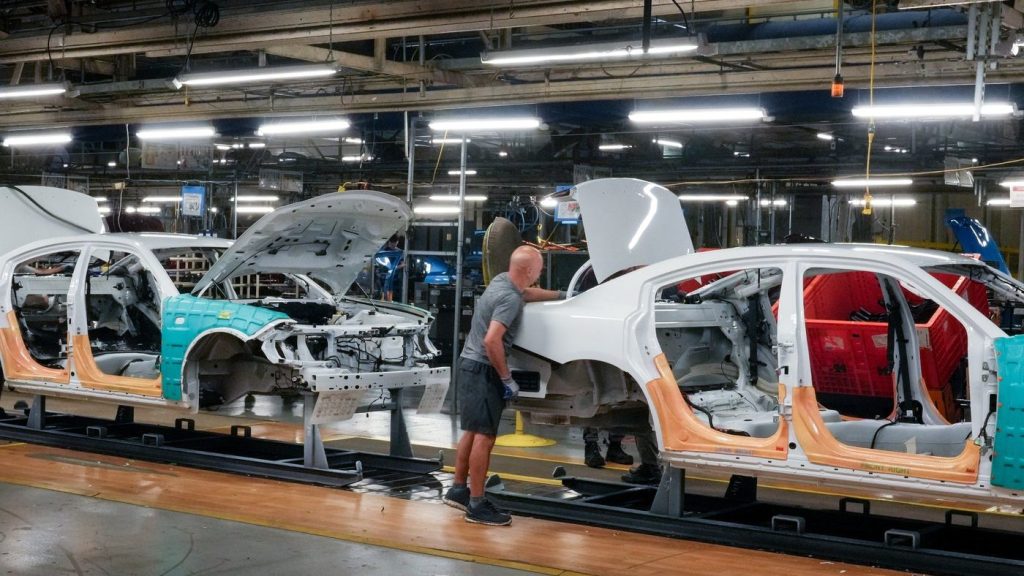Ford says Lutnick indicated Canada will see lower automobile tariffs

Posted Mar 27, 2025 02:13:47 PM.
Last Updated Mar 27, 2025 04:57:52 PM.
Ontario Premier Doug Ford said he spoke on the phone with U.S. Secretary of Commerce Howard Lutnick Wednesday night and was told that Canadian-made vehicles with 50 per cent or more American parts will not face the tariffs.
Ford said it was a productive conversation and Lutnick “knows how integrated the auto trade is” between the two countries — but the provincial government still doesn’t know when Canadian vehicle production might see a tariff break.
“A lot of the automobiles that are manufactured here in Ontario have 50, 60 per cent parts from the U.S.,” Ford said.
Ford said he wants to wait to respond to the latest tariffs until after April 2, when U.S. President Donald Trump is set to implement what he calls “reciprocal” tariffs by increasing U.S. duties to match the tax rates that other countries charge on imports.
Trump signed an executive order Wednesday for 25 per cent levies on automobile imports to the United States starting next week.
A fact sheet provided by the White House said automobiles imported under CUSMA will only be tariffed on the value of content not made in the United States.
Ford said it appears that Canadian vehicles with less than 50 per cent U.S. parts will be subject to those tariffs.
The executive order also imposes tariffs on certain auto parts, including engines, transmissions and electrical components. The White House fact sheet said automobile parts under CUSMA will not be tariffed until Lutnick, in consultation with U.S. Customs and Border Protection, creates a process to identify non-U.S. content.
Trump has said his tariffs are aimed in part at compelling companies to manufacture goods in the U.S. Manufacturers have said redistributing the North American automobile industry would not be easy.
Brian Kingston, president and CEO of the Canadian Vehicle Manufacturers’ Association, said in a media statement said “the result is higher costs for manufacturers, price increases for consumers, and a less competitive industry.
MichAuto executive director Glenn Stevens Jr. said the tariffs will be felt across the American supply chain.
“This means jobs lost, increased input costs and pressure on the balance sheets of companies large and small,” said Stevens Jr., who represents the automobile sector in Michigan.








